6 things you need to do at your degree show, from a D&AD New Blood judge
Stand out from the crowd with these pro tips I judged D&AD New Blood, here's my advice for your graduate show
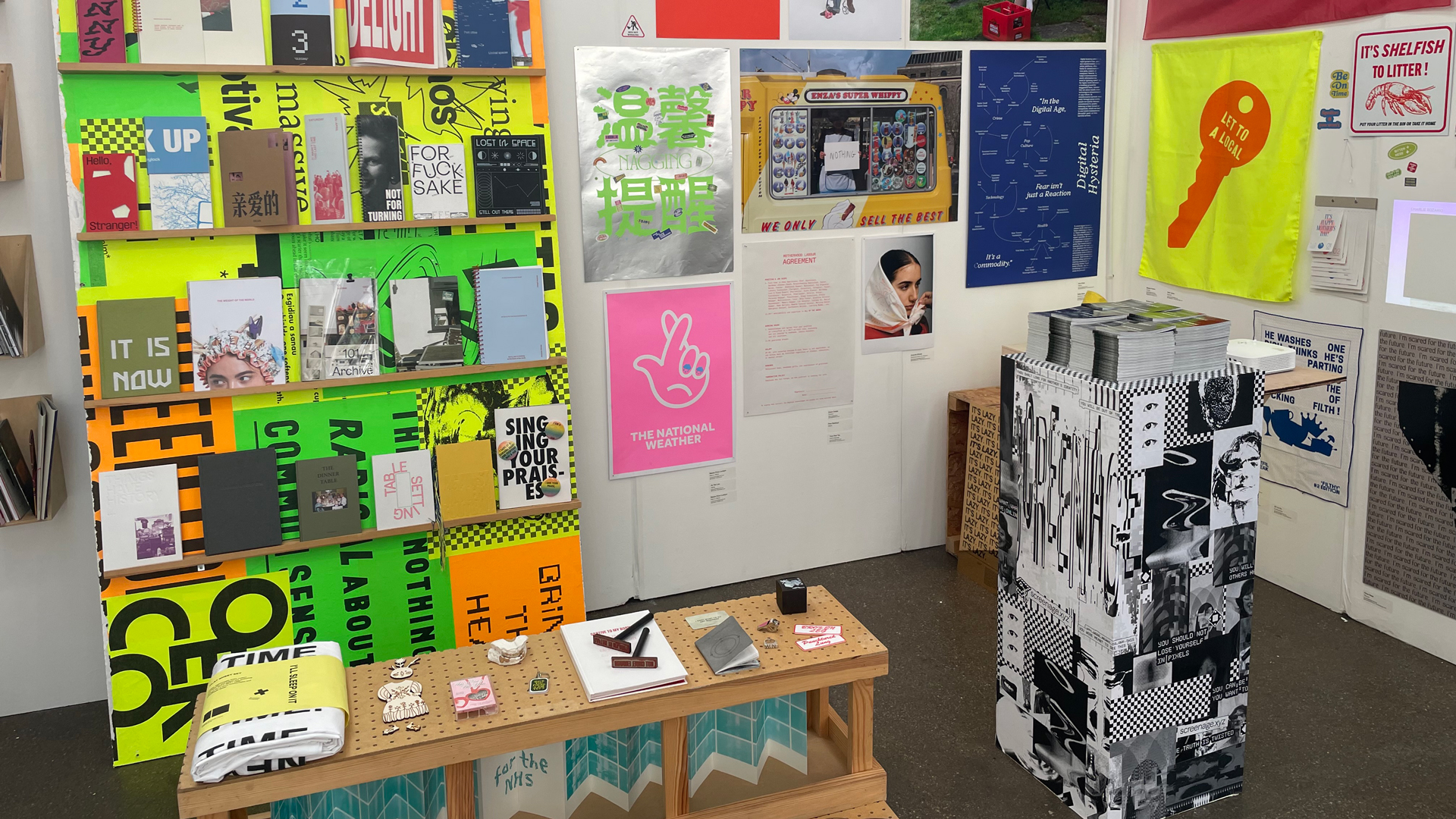
Sign up to Creative Bloq's daily newsletter, which brings you the latest news and inspiration from the worlds of art, design and technology.
You are now subscribed
Your newsletter sign-up was successful
Want to add more newsletters?

Five times a week
CreativeBloq
Sign up to Creative Bloq's daily newsletter, which brings you the latest news and inspiration from the worlds of art, design and technology.

Once a week
By Design
Sign up to Creative Bloq's daily newsletter, which brings you the latest news and inspiration from the worlds of art, design and technology.

Once a week
State of the Art
Sign up to Creative Bloq's daily newsletter, which brings you the latest news and inspiration from the worlds of art, design and technology.

Seasonal (around events)
Brand Impact Awards
Sign up to Creative Bloq's daily newsletter, which brings you the latest news and inspiration from the worlds of art, design and technology.
Yesterday I spent a very enjoyable couple of hours going round D&AD New Blood. I was judging the 'Ones to Watch' category, a coveted prize that gives the brightest young creatives an extra boost.
It was hard. We had less than two hours to go around the whole of Protein Studios in Shoreditch, covering multiple stands, and pick our top three creatives, ideally from a range of disciplines.
There were students of graphic design, advertising and illustration from the University of Falmouth, Nottingham Trent, Ravensbourne, Arts University Plymouth and plenty more.
How did I decide on my top three? I could've chosen many more but ultimately I had to go with the ones that stood out most to me. Here's my advice for anyone who's trying to stand out at any sort of final show, or will be exhibiting at New Blood next year.
And if you want to get your own portfolio in order, see our portfolio examples and the best student MacBooks.
01. Be bold
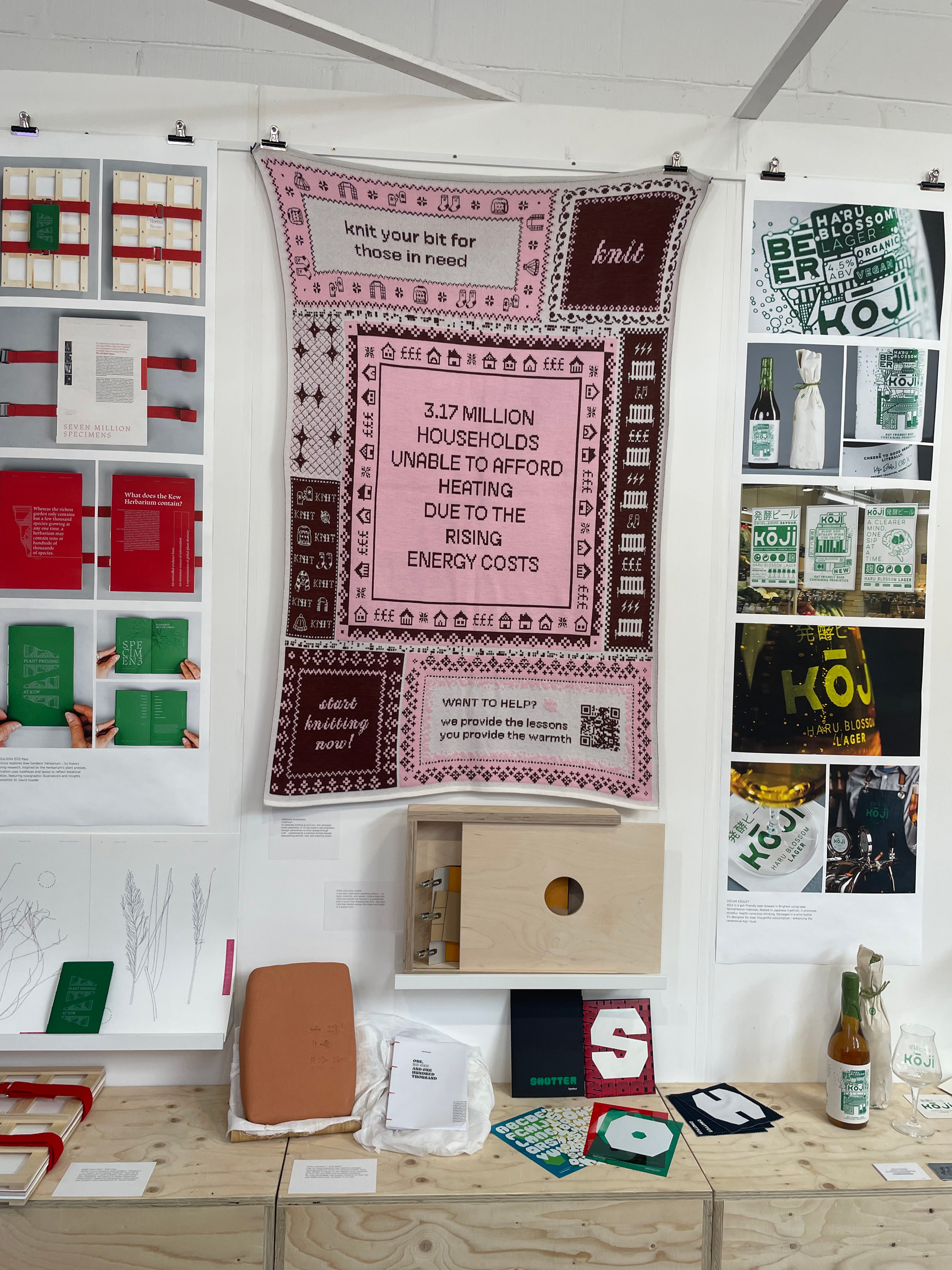
When you're looking at multiple stands at once it can be easy to get overwhelmed. The best work drew me in either because it was unusual, intriguing or just incredibly well done.
If your work looks the same as your fellow creatives, you won't be noticed, so make sure you're bold and individual in what you're doing. Strong statements also drew me in as did unusual materials and outstanding craftsmanship.
Sign up to Creative Bloq's daily newsletter, which brings you the latest news and inspiration from the worlds of art, design and technology.
02. Don't follow trends
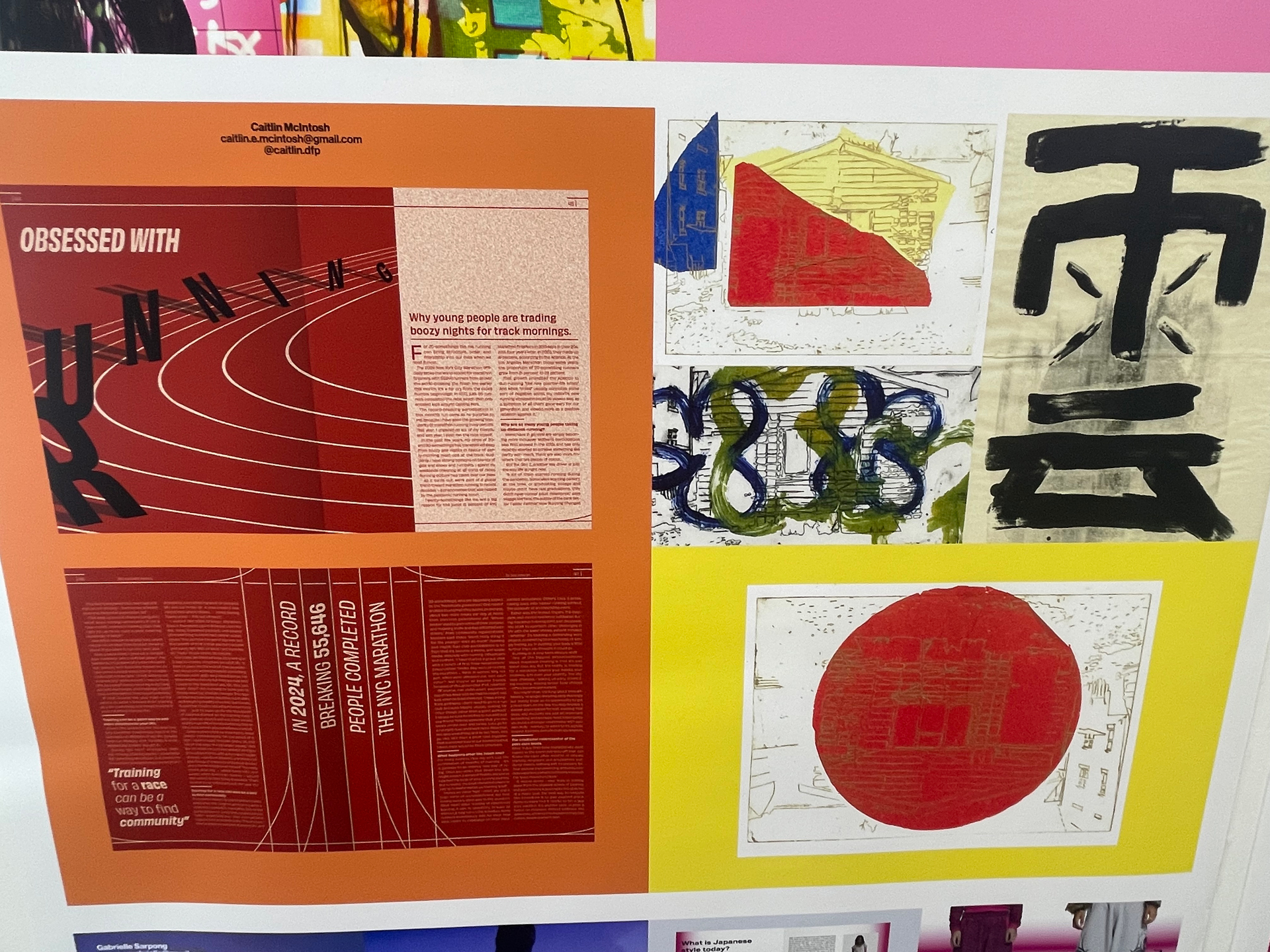
Linked to the above, if your work is too trends-led it won't stand out from the crowd. The best work was individual and didn't look like the same as work that's already out there in the world. Saying that, I saw some work that looked like it could be a real brand or advertising campaign, and that was definitely a positive.
03. Make it clear which work is yours
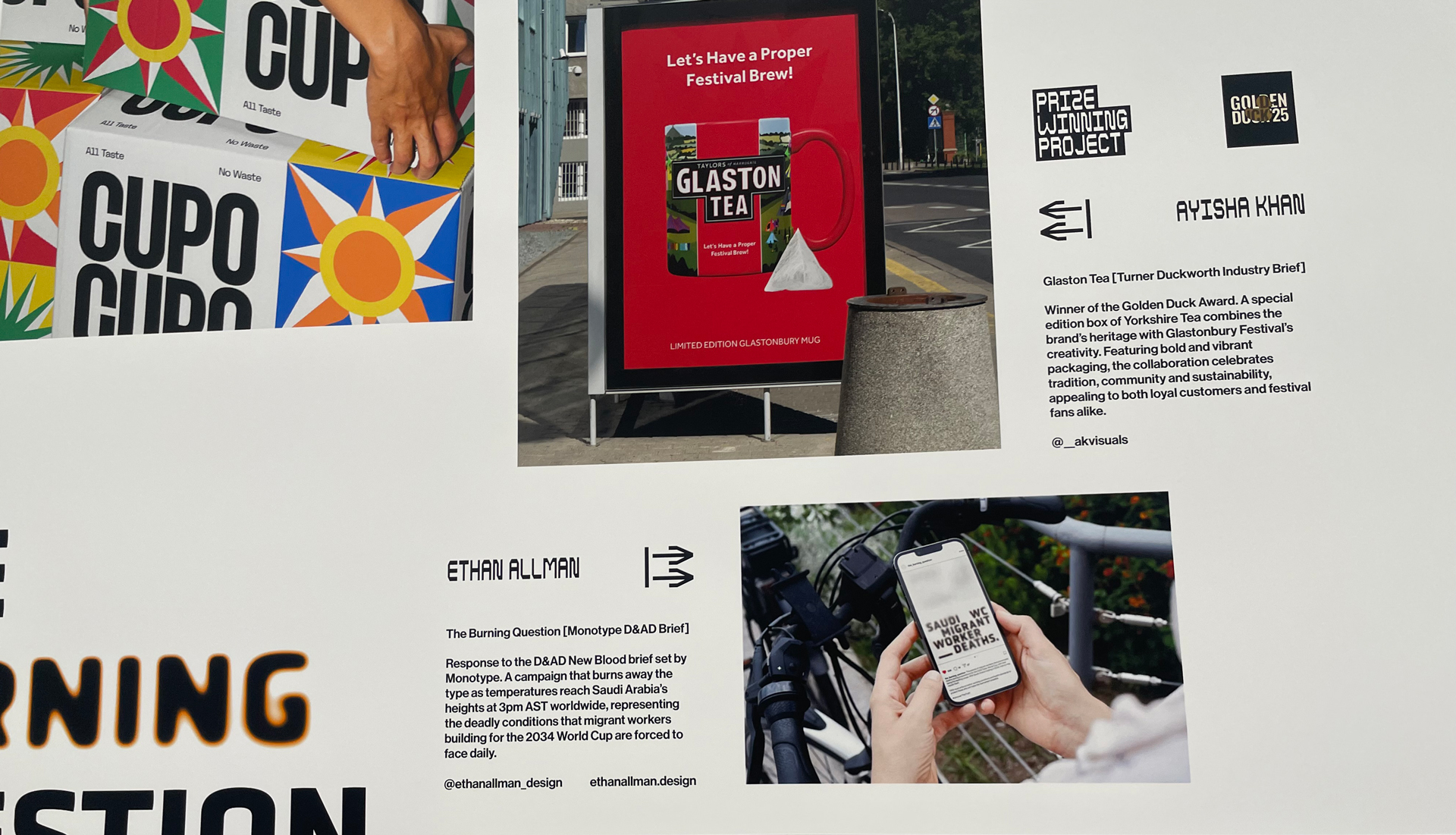
It was tricky on some stands to work out whose work was whose. If you're next to someone else make sure your work is clearly labelled. In fact, make sure your work is labelled full stop. Some people didn't have names or any details next to their work, which made it impossible for me to award them anything.
There was one beautiful stand full of books, for example, but none of them said who they were by, which was a shame as some of them were brilliant.
04. Give as much info as possible
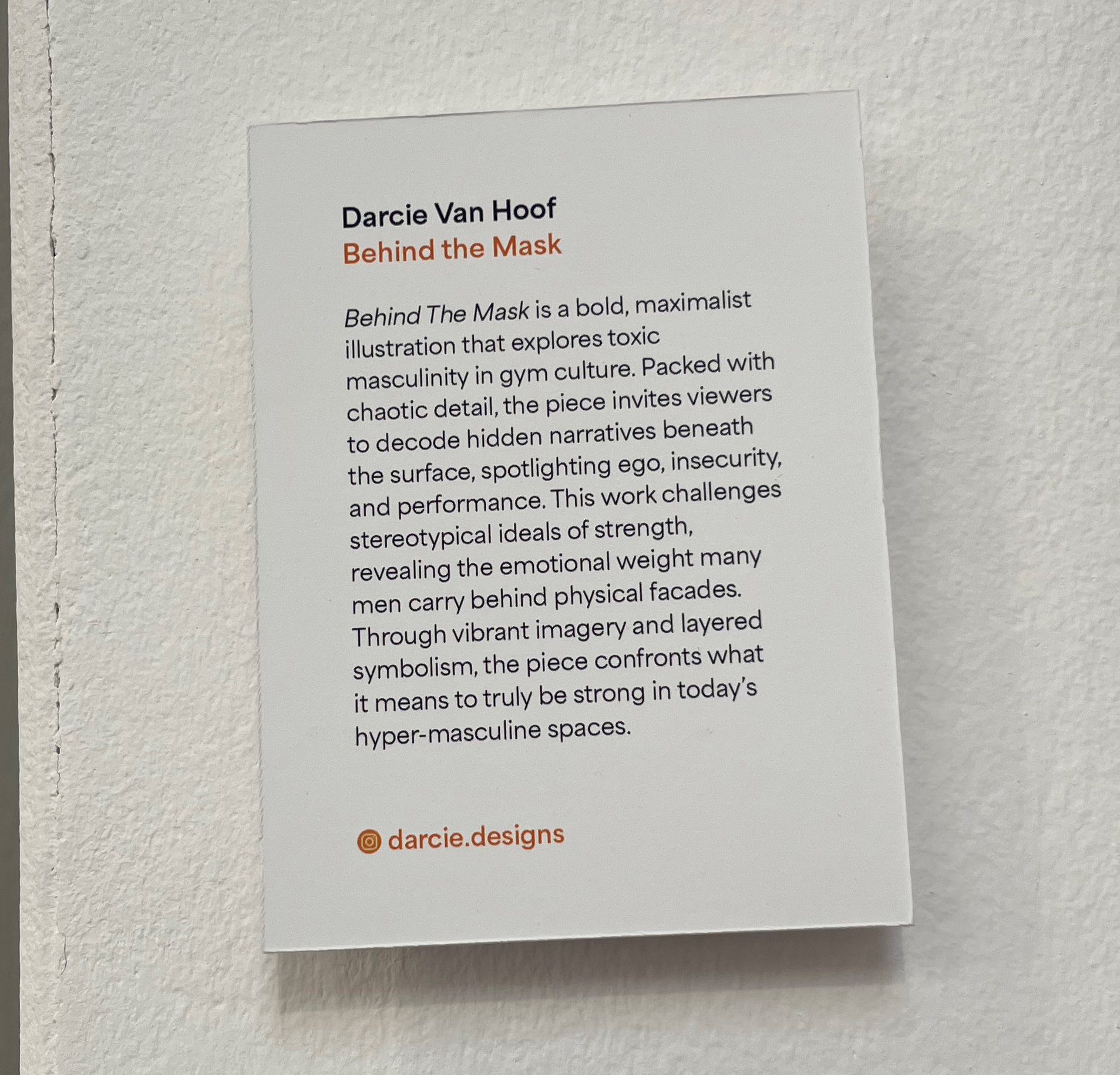
It's helpful for people looking at your work to know why you've created it. Were you given a brief? Were you inspired by something? Why did you decide to create this particular project?
The best captions were clear and succinct and gave just the right amount of information. QR codes linked to more information about the project were also useful.
05. Leave contact details
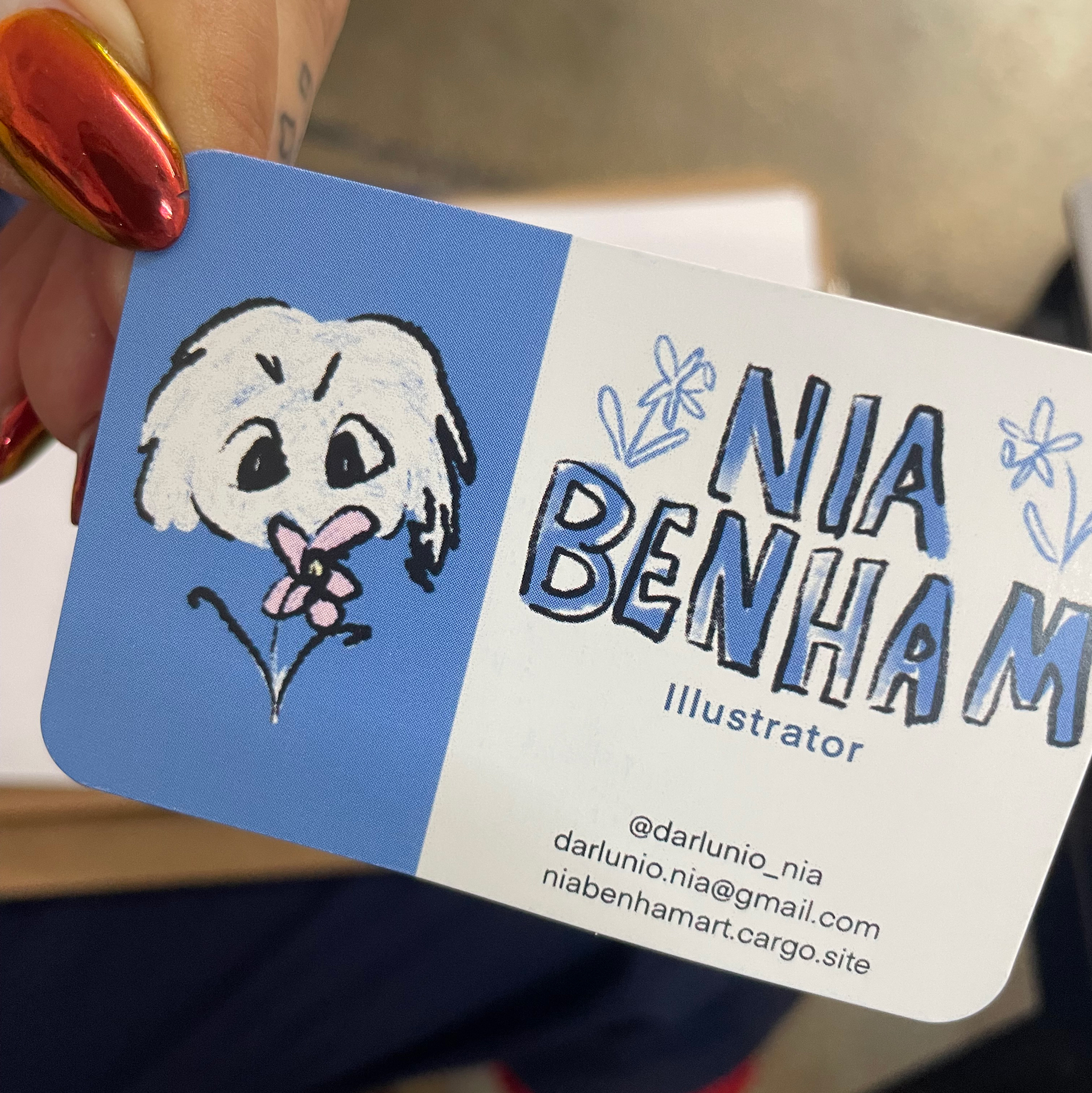
Don't forget to leave your contact details. Write down your email/handle or use a QR code. A good old-fashioned business card is also something tactile and provides a great way for people to remember you.
The best business cards are well designed with clear information. If you want a template to get you started see the best business card templates.
Also make sure that if you are linking to a website or Instagram that there is enough information on there and it's not just a feed full of selfies. I saw a few linked Instagram accounts that only had 4 or 5 posts, which didn't feel enough to give me a feel for their work.
06. Double check spelling
I shouldn't have to say this, but double check your spelling. I saw a few post captions with spelling mistakes in them, which instantly put me off. Your showcase of work should be as perfect as it can be, and that includes spelling.
Get someone else to check it for you, and then check it again!
For more on how to succeed at your degree show, see our piece on how to network.

Rosie Hilder is Creative Bloq's Deputy Editor. After beginning her career in journalism in Argentina – where she worked as Deputy Editor of Time Out Buenos Aires – she moved back to the UK and joined Future Plc in 2016. Since then, she's worked as Operations Editor on magazines including Computer Arts, 3D World and Paint & Draw and Mac|Life. In 2018, she joined Creative Bloq, where she now assists with the daily management of the site, including growing the site's reach, getting involved in events, such as judging the Brand Impact Awards, and helping make sure our content serves the reader as best it can.
You must confirm your public display name before commenting
Please logout and then login again, you will then be prompted to enter your display name.
